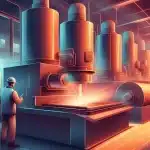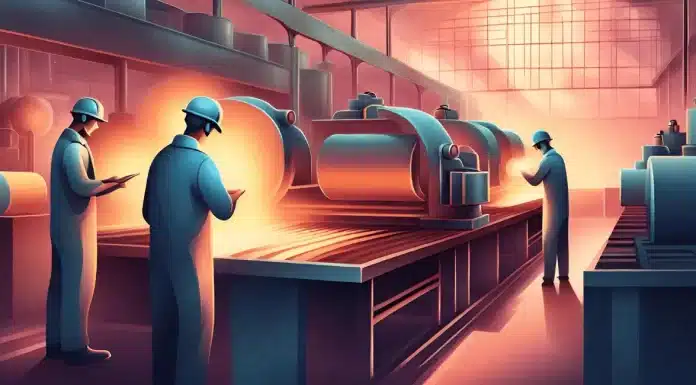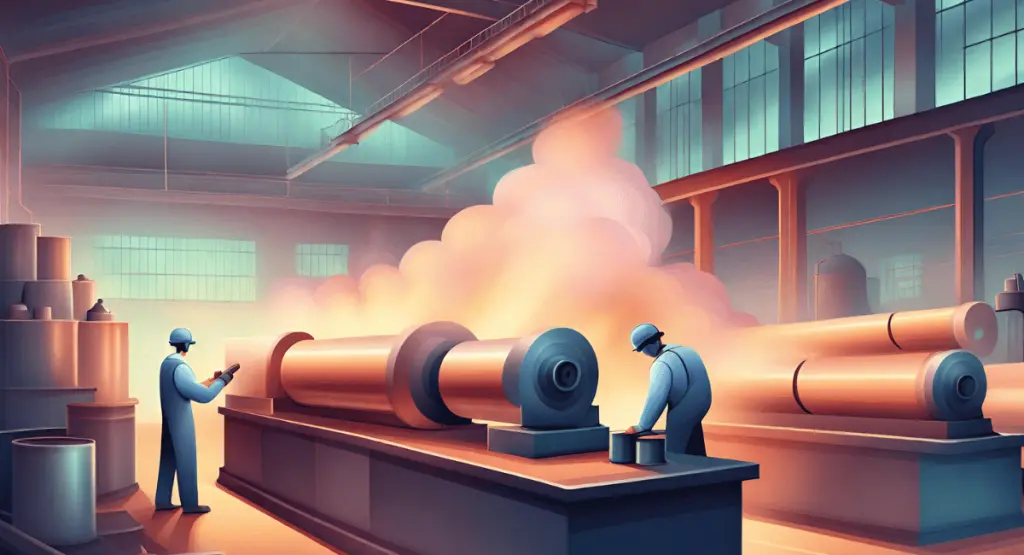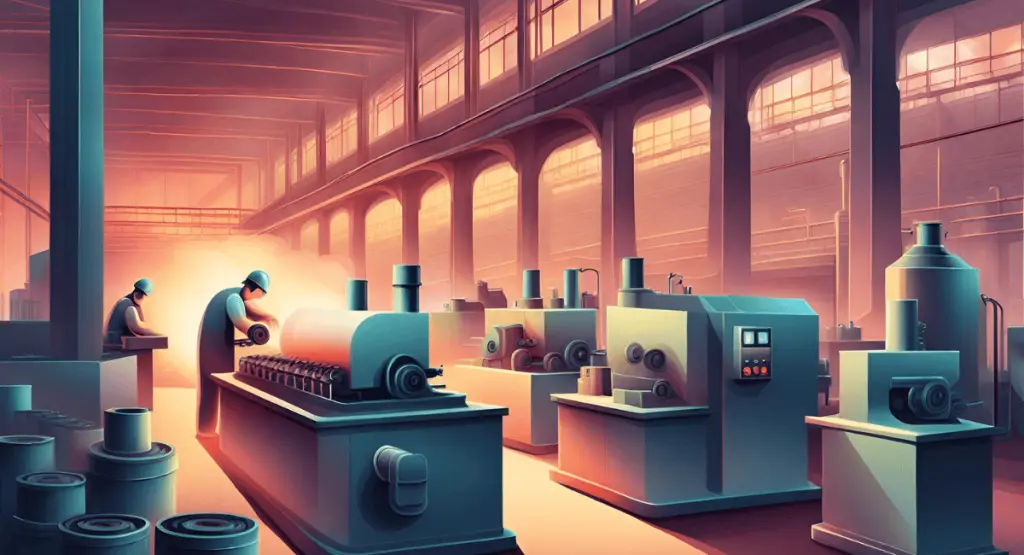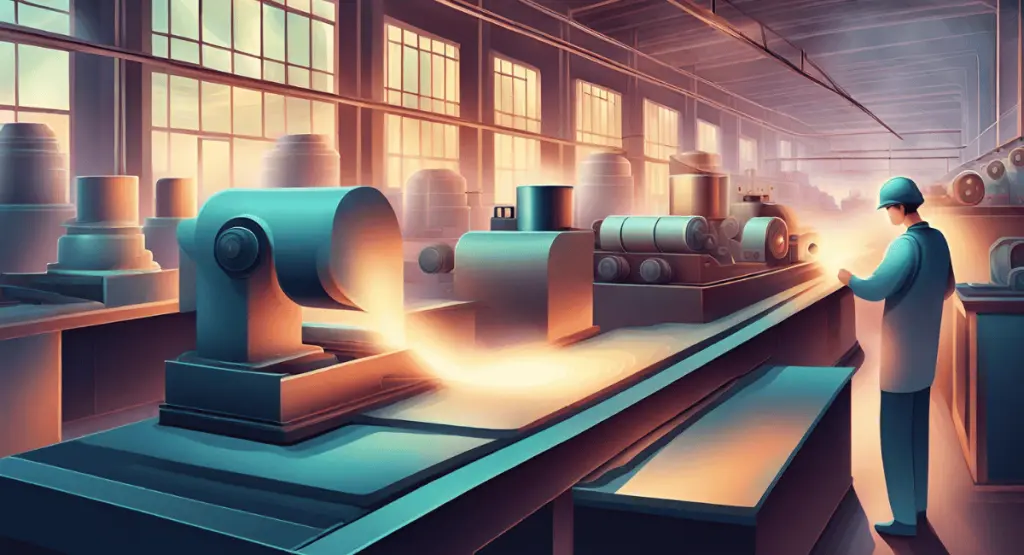Manufacturing is the process of converting raw materials and components into finished goods, playing a crucial role in driving the growth of the Philippine economy.
It not only contributes to job creation but also drives exports and economic growth. It serves as a backbone for various sectors, including automotive, electronics, textiles, and more. Understanding the significance of manufacturing and its various facets is essential for individuals and businesses alike.
To better grasp the importance of manufacturing in the Philippine economy, let’s explore the historical development of this industry, the different types and techniques of manufacturing, manufacturing strategies and ERP integration, challenges faced by manufacturers, and the future of manufacturing in the Philippines.
So, whether you’re looking to expand your manufacturing knowledge or optimize operations, this guide has you covered. Let’s embark on this journey and uncover the world of manufacturing together.
Table of Contents
Introduction to Manufacturing
Manufacturing refers to the process of transforming raw materials into finished products, using various techniques and technologies.
It plays a crucial role in the Philippine economy by providing employment opportunities, contributing to exports, and driving economic growth. It is a key sector that supports the growth of other industries and has a significant impact on various sectors of the economy.
The manufacturing sector in the Philippines is diverse and includes industries such as electronics, automotive, apparel, food processing, and more. These industries contribute to the country’s GDP and generate revenue through exports, promoting economic development.
Additionally, manufacturing creates employment opportunities, helping to alleviate poverty and improve the standard of living for Filipinos. The adoption of AI in manufacturing further enhances productivity, creating new roles that require digital skills while providing stable and well-paying jobs, boosting household income, and stimulating consumer spending.
Furthermore, manufacturing is crucial for sustainable economic growth. It fosters innovation, encourages research and development, and drives technological advancements, leading to higher productivity and competitiveness.
In conclusion, manufacturing is a vital sector in the Philippine economy due to its role in job creation, export earnings, and economic growth. Its significance extends beyond its direct contribution to the economy, as it supports the development of other sectors and drives innovation.
Types and Techniques of Manufacturing
In this section, we will provide an overview of the different types and techniques of manufacturing. Understanding these methods is essential for optimizing production processes and improving efficiency in your manufacturing operations.
Make-to-Stock (MTS) manufacturing: This approach involves producing goods based on forecasted demand. Manufacturers create inventory in advance, anticipating customer orders. MTS manufacturing is suitable for products with stable demand patterns and short lead times. By maintaining stock, businesses can quickly fulfill customer orders and reduce lead times.
Make-to-Order (MTO) manufacturing: With MTO manufacturing, products are only produced after customer orders are received. This method allows for customization and flexibility, accommodating diverse customer preferences. As the production is demand-driven, MTO minimizes inventory costs and lowers the risk of obsolete stock.
Assemble-to-Order (ATO) manufacturing: ATO manufacturing involves pre-producing standard components and assembling them according to customer specifications. This method provides a balance between customization and efficient production. By pre-assembling components, manufacturers can quickly respond to customer orders while reducing lead times and costs.
Lean manufacturing: Lean manufacturing is a systematic approach focused on eliminating waste and maximizing efficiency. It emphasizes continuous improvement, reducing excess inventory, minimizing defects, and optimizing workflows. Lean manufacturing principles, such as Value Stream Mapping and Just-in-Time production, help streamline operations and enhance overall productivity.
Agile manufacturing: Agile manufacturing is a modern production approach that emphasizes flexibility, speed, and responsiveness to change. It enables manufacturers to quickly adapt to shifting customer demands, market conditions, and technological advancements. By integrating modular processes, real-time data, and collaborative workflows, agile manufacturing supports continuous improvement and efficient, customer-focused production.
Manufacturing Strategies and ERP Integration
In order to improve operations and achieve efficiency, companies often adopt various manufacturing strategies. These strategies are designed to optimize production processes, reduce costs, and enhance overall performance.
One key aspect of efficient manufacturing operations is the integration of Enterprise Resource Planning (ERP) systems. They integrate functions such as production planning, inventory management, and customer relations into a centralized system, providing real-time data and enabling efficient decision-making.
By implementing ERP system, manufacturers can achieve greater visibility and control over their operations. They can effectively manage inventory levels, reduce lead times, and improve production scheduling. ERP systems also facilitate collaboration and communication across different departments, fostering a culture of continuous improvement.
Furthermore, manufacturing ERP enables manufacturers to respond swiftly to changing market demands and optimize resource allocation. With accurate and timely data, managers can make informed decisions, identify bottlenecks, and implement corrective measures. This agility is paramount in the fast-paced, competitive manufacturing landscape.
Now that you know why systems are important for manufacturing. If you would like to know what manufacturing system suits your company, you can read further in our manufacturing software recommendation.

Challenges and Solutions in Modern Manufacturing
Modern manufacturing companies in the Philippines face a multitude of challenges that can hinder their growth and success. It is important for these manufacturers to identify and address these challenges effectively in order to thrive in the competitive business landscape.
One of the major challenges faced by manufacturers is global competition. As globalization continues to increase, manufacturers in the Philippines have to compete with companies from around the world. This brings the need to constantly innovate and improve their products and processes to stay ahead of the competition.
Adopting smart manufacturing practices can help address these challenges by leveraging advanced technologies such as automation, real-time data analytics, and interconnected production systems. Implementing advanced technologies alongside a customer-focused approach enables manufacturers to differentiate themselves, optimize processes, and meet the evolving demands of global customers more effectively.
Another challenge is the changing customer demands. As consumer preferences evolve, manufacturers need to be agile and adaptable to meet these changing demands. By staying attuned to market trends, manufacturers can stay relevant and ensure customer satisfaction.
Supply chain disruptions also pose challenges for Philippine manufacturers. Disruptions caused by natural disasters, political instability, or global events can impact the supply of raw materials and components, leading to delays and increased costs.
Manufacturers can mitigate these challenges by diversifying their supply chain and building strong relationships with multiple suppliers. Implementing technologies such as real-time monitoring and data analytics can also help in identifying and addressing potential supply chain issues proactively.
The need for skilled labor is another significant challenge faced by manufacturers. With the rapidly evolving technological landscape, there is a growing demand for workers with specialized skills in areas such as automation, robotics, and data analysis.
However, there is often a shortage of such skilled labor in the Philippines. Manufacturers can overcome this challenge by investing in training and upskilling programs, collaborating with educational institutions to bridge the skills gap, and fostering a culture of continuous learning within their organizations.
Despite these challenges, there are several solutions that manufacturers can adopt to thrive in the modern manufacturing landscape. Embracing advanced technologies such as automation, artificial intelligence, and manufacturing accounting software can improve efficiency, productivity, and competitiveness.
Implementing lean manufacturing principles and other inventory software can help eliminate waste and streamline processes. Building strong partnerships and collaborations with suppliers, customers, and industry peers can also drive innovation and enable manufacturers to leverage shared resources and expertise.
The Future of Manufacturing in the Philippines
The manufacturing industry is undergoing significant transformations driven by advancements in technology, automation, and digitalization.
Artificial intelligence (AI), robotics, Internet of Things (IoT), and automation are revolutionizing the manufacturing processes, making them more efficient, precise, and adaptable. These technologies enable the development of smart factories and digital supply chains, optimizing production and reducing costs.
The future of manufacturing in the Philippines holds immense potential. As the fourth industrial revolution unfolds, the adoption of advanced technologies will unlock new opportunities for Philippine manufacturers. The integration of AI and robotics will enable the creation of highly autonomous and flexible manufacturing execution systems.
The emergence of the Internet of Things (IoT) will connect machines, processes, and products, facilitating real-time data exchange and enabling manufacturers to make data-driven decisions. This connectivity will enhance operational efficiency, predictive maintenance, and supply chain visibility.
Furthermore, automation will continue to play a significant role in manufacturing, enabling repetitive tasks to be carried out with speed and accuracy. This will free up human workers to focus on more complex and creative tasks, improving productivity and fostering innovation.
Manufacturers in the Philippines must adapt to these emerging trends to stay competitive in the evolving landscape. Investing in technological infrastructure, upskilling the workforce, and fostering a culture of innovation are essential for future success.
The future of manufacturing in the Philippines is bright, and by embracing technology and staying on top of industry trends, Philippine manufacturers can position themselves at the forefront of the global manufacturing sector.
Summary and the evolving landscape of manufacturing in the Philippines
In conclusion, manufacturing plays a critical role in the Philippine economy, contributing to overall economic growth. Manufacturing in the Philippines has come a long way, from traditional methods to modern practices driven by the emergence of Industry 4.0.
The adoption of technologies like automation, artificial intelligence, and IoT has revolutionized the industry, leading to increased efficiency, productivity, and innovation. It has also presented challenges, such as global competition and changing customer demands, which manufacturers need to address strategically.
To overcome these challenges and adapt to the evolving landscape, Philippine manufacturers must adopt manufacturing strategies like Just-in-Time, Total Quality Management, and lean manufacturing. These strategies, combined with the integration of Enterprise Resource Planning (ERP) systems, can support efficient operations and improve overall performance.
Grab your chance to try the free demo now!






